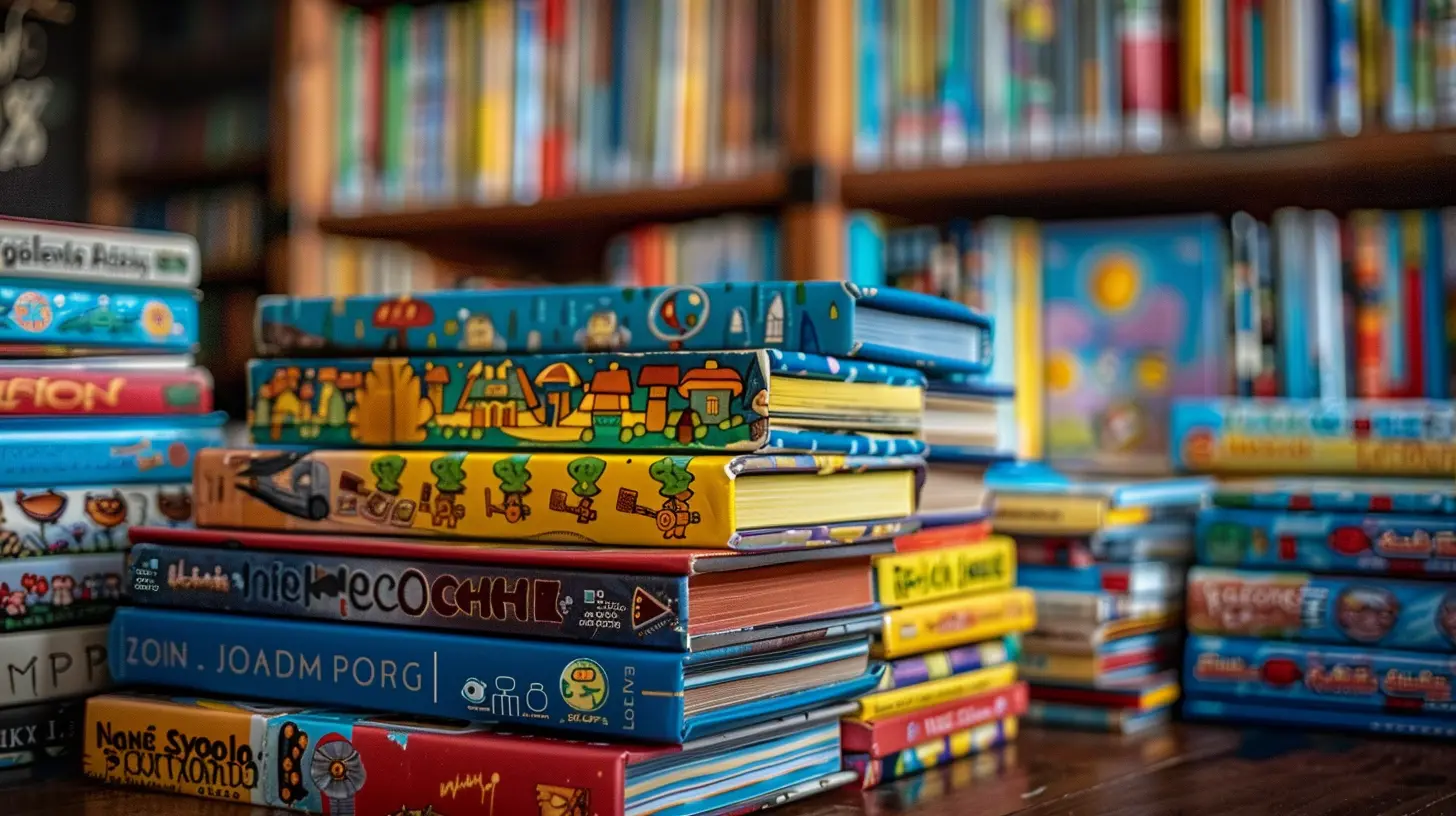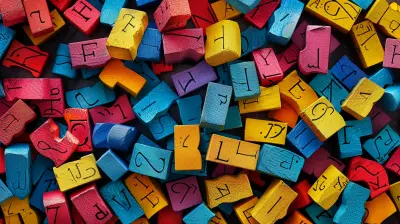1 July 2025
Let’s face it—learning doesn’t have to be boring. If you've ever tried to get kids engaged in reading or writing, you already know that worksheets and flashcards can only go so far. That's where language arts games come in. They're the superheroes of the classroom (and the living room) when it comes to building strong literacy skills in a fun and interactive way.
In today’s world, with so many distractions tugging at kids’ attention, turning learning into a game is not just helpful—it’s essential. So whether you're a teacher, homeschooling parent, or just someone who wants to give their child a learning edge, integrating language arts games could be the missing piece of your puzzle.

Why Use Games to Teach Literacy?
Think back to when you were a kid—did you learn better through boring lectures or engaging play? Exactly! Kids of all ages (and honestly, adults too) retain more information when they're genuinely interested. Games tap into our natural competitive spirit, curiosity, and willingness to try over and over again without the fear of failure.The Brain on Play
When kids play games, they're not just having fun—neurons are firing, connections are growing, and retention skyrockets. Games often involve repetition, which reinforces concepts subconsciously. Plus, they give instant feedback, helping kids correct mistakes in real-time without the embarrassment that sometimes comes from traditional teaching styles.
Core Literacy Skills Strengthened by Games
Before we dive into the best types of games, let's have a quick refresher on what we mean by "literacy skills." It's not just reading fluently. Literacy includes:- Phonemic awareness – Understanding and manipulating sounds in words
- Vocabulary – Knowing and using a wide set of words
- Grammar and syntax – Forming correct and meaningful sentences
- Reading comprehension – Understanding what’s being read
- Writing and storytelling – Expressing ideas clearly in written form
- Spelling and punctuation – Writing correctly and clearly
Now, guess what? Language arts games can boost all of these areas, often at the same time! Let’s break this down into fun, manageable chunks.

Board Games That Build Brains
Old-school? Maybe. Effective? Absolutely. There’s a reason classics like Scrabble haven’t gone out of style.1. Scrabble & Bananagrams
These word-building favorites do more than just entertain. They sharpen spelling, expand vocabulary, and improve strategic thinking. You’d be surprised how competitive kids can get trying to come up with high-scoring words.Pro Tip: Introduce theme-based rules—use only animal names or science terms—to align gameplay with classroom topics.
2. Blurt!
This underrated gem is perfect for building vocabulary. One person reads a definition, and others race to "blurt" out the correct word. It’s fast-paced, hilarious, and totally educational.3. Apples to Apples Junior
Think of it as an exercise in making connections. This game encourages players to match nouns to adjectives, which sneakily teaches kids about descriptive language, synonyms, and context.
Digital Language Arts Games: Learning on the Go
In a tech-driven world, digital games are the perfect learning tool. They’re interactive, track progress, and adapt to a child’s individual level.4. ABCya
A favorite in many elementary classrooms, ABCya offers a whole range of language arts games categorized by grade. From sight words to grammar puzzles, there’s something for everyone.5. Epic!
Okay, technically this is an eLibrary packed with high-quality children's books, but Epic! turns reading into a game. Kids earn badges for reading time, try quizzes, and explore genres they might not otherwise pick up.6. Prodigy English
Think of it like a magical world where kids collect items and build villages—but have to use reading and writing to level up. It keeps them immersed for hours, all while practicing key literacy skills.DIY Language Arts Games (Low Prep, High Fun)
Not everything needs to be bought or downloaded. Sometimes, the best learning tools are made from paper, pencils, and a whole lot of imagination.7. Word Scavenger Hunts
Hide words around the room and give kids clues to find them. Once they’ve found them all, challenge them to write a story using each word. You’ll be amazed at how creative they can get when there’s a treasure hunt involved!8. Grammar Jenga
Take a basic Jenga set and write grammar prompts or questions on each block. Every time a player pulls a block, they have to answer correctly or do a small task (like hopping on one foot or singing the alphabet backwards). Who said grammar can’t be wild?9. Story Dice
You can buy these or make your own. Roll dice with pictures and create stories on the spot. This boosts creativity, sequencing, vocabulary, and storytelling skills—plus, it’s hilarious to hear what kids come up with!Classroom Integration: Making Games Part of the Lesson Plan
Games shouldn’t just be a Friday afternoon treat—they should be embedded into everyday learning. Here's how to make that happen.Center Rotations
Set up learning centers with different games focusing on distinct skills. One station might have a spelling game, another reading comprehension, and another writing activities. Kids rotate every 15–20 minutes, turning the whole class into a literacy circuit.Homework Reboot
Swap traditional homework for game-based assignments. Instead of filling out a worksheet, students might need to play a vocabulary-based board game with their family and write about who won and which words they learned.Group Competitions
Divide students into teams and hold grammar or vocabulary "Olympics" complete with mini-games, medals, and cheers. You'll be amazed how this lights a fire under even the most reluctant learners.Benefits Beyond the Books
Language arts games don't just help with literacy—they also build soft skills like teamwork, communication, patience, and critical thinking. And let’s not forget confidence. When kids feel successful, they engage more, try harder, and grow faster.A Confidence Game
Especially for struggling readers, games remove the stigma of "learning." They don’t feel like they’re being taught—they’re just playing. But in the background, real development is happening.Inclusive and Adaptive
Games can be tweaked for all learners, including those with learning differences. Visual learners, kinesthetic learners, auditory learners—there’s a game that suits everyone.Tips for Choosing the Right Game
Let’s not just throw a random board game into the mix and hope for magic. Here’s what to look for when picking a language arts game:- Aligns with your learning goals (spelling, grammar, reading, etc.)
- Age-appropriate and engaging
- Offers both individual and group play options
- Includes clear instructions and minimal prep
- Encourages replayability to reinforce skills
Don't be afraid to mix it up and rotate games often. Variety keeps things fresh and exciting.
Final Thoughts
At the end of the day, language arts games are more than just classroom candy; they’re powerful tools that can transform how kids learn literacy. They take the stress out of reading and writing, replace groans with giggles, and create a learning environment filled with curiosity, laughter, and growth.So next time you see a child struggling with spelling or feeling defeated by a writing assignment, try a game. Because when learning looks like play, magic happens.









Pilar Cantu
Great insights! These games truly enhance literacy development.
February 10, 2026 at 1:57 PM